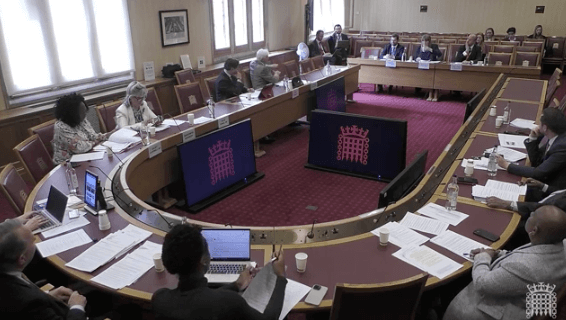https://foreignpolicy.com/2022/06/01/china-ukraine-war-geopolitics-taiwan/


They argue that “the solution to this isn’t to go softer on China’s territorial aggression or large-scale human rights abuses. It’s doing the hard work of decoupling now to give the United States the freedom to act in defense of the global world order and its own values. Otherwise, Washington could end up in the same situation as Berlin, with a complacent leadership suddenly called to account by public anger and struggling to manage the economic consequences.
They give a number of examples of how CCP influence has penetrated American society and subverted attitudes and policy. Extract:
American movie studios rely on ticket sales in China, which now exceed tickets sold in North America, giving Chinese censors extraterritorial control over what can and can’t be said in movies Americans watch every day. There has not been a major U.S. motion picture that has been critical of China since Seven Years in Tibet was released a quarter-century ago. Or why actor Richard Gere’s career stagnated after he condemned Beijing’s occupation of that region. Or why Red Dawn 2 had to be digitally overhauled to feature North Korean rather than Chinese villains. As recently seen by Tencent suddenly pulling out its financing for the blockbuster Paramount movie, Top Gun: Maverick, when it included an iconic Taiwanese flag image, Beijing’s line isn’t merely drawn at censoring criticism of the CCP; celebrating the U.S. military is equally censorship-worthy. Naturally, that movie has no release date in China.
Hollywood isn’t the only iconic American institution too often beholden to Beijing. The NBA reportedly runs a more than $5 billion operation in China, and its owners have an estimated $10 billion in assets tied up in that country, forcing the league to reflexively kowtow when players or executives criticize CCP repression. The CCP celebrates criticism of the U.S. government when players take a knee during the national anthem but screams in protest when they stand tall in sneakers depicting animation graphics on Uyghurs. One player saw his NBA career cut short after he began to do just this. Likewise, TikTok, used by tens of millions of Americans each day and owned by a Chinese firm, is accused of using algorithms that promote CCP-favored narratives. Trade with China is changing the United States more than it is changing China—precisely the opposite of what policymakers promised the world when Beijing was admitted to the World Trade Organization two decades ago.
Enes Kanter Freedom is an activist and former NBA player.
Jacob Helberg is a senior advisor at the Stanford University program on geopolitics and technology, an adjunct fellow at the Center for Strategic and International Studies, and the author of a forthcoming book on the nexus of technology policy and national security. Twitter: @JacobHelberg



